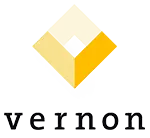When we launched Vernon –one year and a half ago– our mission was clear from day 1: “help the European startup ecosystem grow”. Guided by this statement we’ve been doing two types of projects:
- Product and Tech due diligence: we’ve worked with over 25 startups all over Europe (Spain, UK, Germany, Norway or Portugal) in both funding-round due diligence –hired by a VC before investing– or “internal” due diligence projects –when we help a startup plan the next year of growth–.
- Interim management: longer term projects where we temporarily act as the startup’s CTO and Head of Product. We’ve have been lucky to work with two great companies during this time: chicfy and Clarity.
On top of that, we became part of the Kibo Ventures family as Operating Partners –where we help with the deal flow, due diligence reports and the product and tech issues of portfolio companies– and help out younger companies as Residency Advisors in Campus Madrid.
Building a product in the recruiting space
After spending 18 months surrounded by great founders and projects, we craved for creating our own product while sticking to our mission. We wanted to find a major pains in the European startup ecosystem and work on it.
It seems obvious now but it took us some time to realise what the main challenge shared by all startups we’ve worked with is: hiring great talent. On top of that, we’ve been personally on both sides of the table –hiring and being hired– and we’ve got industry experience from working over 2 years at Jobandtalent. It was definitely a problem we were motivated to solve.
From our own experience, “sourcing” –engaging talented candidates into your interview funnel– is the hardest part of the process due to the scarcity in the offer side of the market — candidates–. Startups usually use four different sources for candidates:
- LinkedIn: time-consuming and extremely spammy for candidates.
- Traditional Job boards: where startups end up receiving a high percentage of irrelevant applications.
- Headhunting services: very expensive and bad “UX” for candidates.
- Recommended candidates: by employees and colleagues. This is the preferred option for all startups, but limited to the size of the network.
We started thinking about how that pool of recommended candidates could be scaled and, after a few weeks talking to a lot of different players in the industry, we found a differentiated and unique approach:
Around 90–95% of the candidates starting an interview process are not hired. They form a talent pool of candidates that can be recommended to other startups.
Why don’t we build a shared talent pool where a group of startups can share great candidates –if the candidate accepts the invitation–? That’s how we started working on The Hiring Circle.
The Hiring Circle PoC
The Hiring Circle is a proof of concept (PoC) that aims to prove that:
- startups are willing to share candidates from their recruitment process.
- candidates are willing to signup into the shared talent pool.
- hirings are actually generated within the Circle.
We’ve been working on it for about four weeks. It has been a really fun ride because we didn’t have any previous UI design or frontend development hands-on experience so we had to learn it as we progressed with the project. We chose a stack that allowed us to go very fast without compromising stability: Django and Bootstrap 4 with the Shards UI kit.
Today we launch The Hiring Circle (PoC) with one goal: keep learning and iterating over the idea of a shared talent pool.
If you are a startup you can:
- Ask for candidates and received recommended candidates from our shared talent pool.
- Recommend candidates and contribute to the circle.
As a talented candidate:
- If you’re invited, you will receive opportunities from top startups (that we manually curate) in your inbox or Telegram.
- If you like them, you will be introduced to the company right away
PS: stay tuned, we will post updates on how the project evolves.




